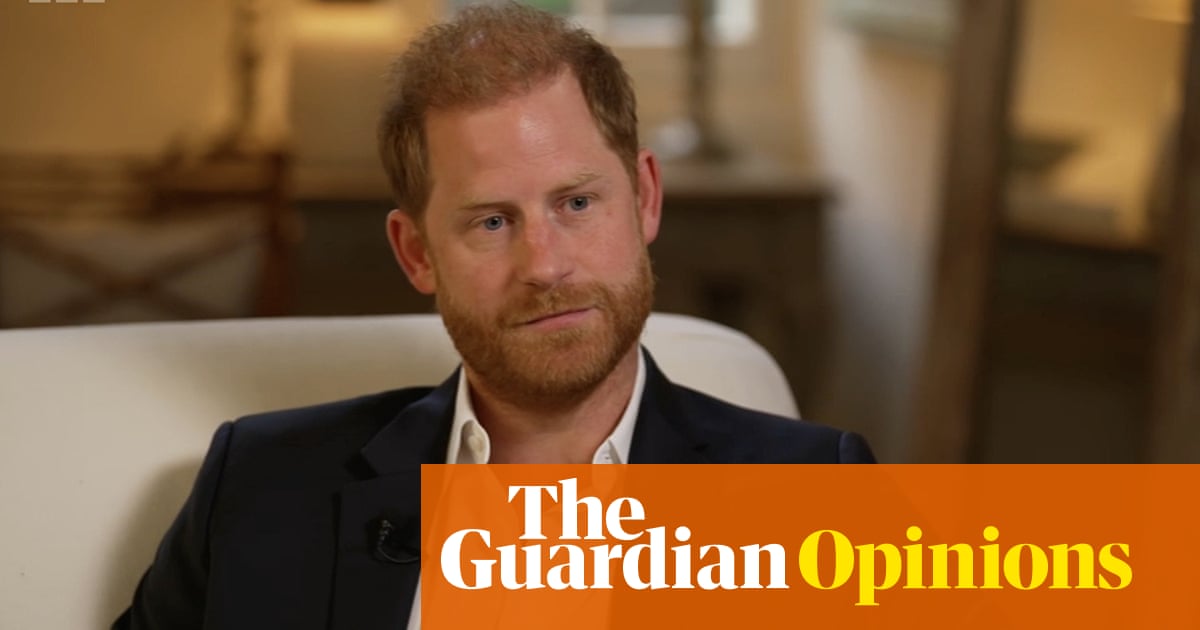Well, isn’t this a plot turn? You switched on for the latest cinematic episode ofPrince Harryfights the fight – not against the Mirror this time, not against Murdoch either, but against those who have stripped him of his security protection – and then the script goes to places that no one expected.
Heloseshis legal challenge in the court of appeal over the degree of security he is entitled to on the public purse while in the UK – that was pretty much expected. But then, in the second instalment of Britain’s longest-running potboiler, he exclusivelyopens an anguished heartto the BBC, post the appeal court verdict, and all sorts of dramatic twists ensue.
He says he is devastated, he says he wants a reconciliation with the family from which he is so visibly estranged. Of his father he says: “He won’t speak to me because of this security stuff”, adding: “I don’t know how much longer my father has.” He is, in dark jacket and white, open-necked shirt, a sombre, slightly haunted figure. The victim of a “good old-fashioned establishment stitch-up”. Cut to close-up, run the credits.
You may take the view that this is why we still have a royal family. Bread and circuses aren’t the TV draw they once were and the House of Windsor, like all good media entertainment, gives thrills, sparks debate – it adds to the national diet of joy and pain.
One cannot be too haughty while watching this stuff and commenting on it, when so many of us are in one way or another complicit. We engage because they interest us, or we don’t engage and tell everyone we are not engaging because to do so make us seem studious and interesting. But either way, we are part of it.
Still, it is hard to watch Prince Harry emoting to theBBCroyal correspondent on a gleaming white sofa at a location close to his home in Montecito, California, and not wonder what exactly it is we are part of. We watch a weird family behaving ever more weirdly on a circular stage affording a worldwide audience a clear view of all their rivalries, jealousies, faults, quirks and ailments.
Today, in particular, we watch a young man, exiled or self-exiled, depending on your view of all that’s gone before, explain why his father won’t speak to him, that he might never get the chance to speak face to face with him because he might die first and why he no longer feels safe in his country of birth. That may all be true and sincerely felt: if so, it’s all wretchedly sad.
That might also be the stuff of cynical performance: a dead-cat distraction to move the headlines away from the rejection of his case by the court of appeal. A plotline that sets up the equal and opposite plotline for next week’s barnstorming episode. But either way, it makes for queasy viewing.
You will take a view, you may take a side, but who will look away? Not many; not me. Real-life anguish, confected entertainment, the lines blurred so long ago they hardly matter – this show runs because in our various ways, for our many and varied reasons, we want it to and we tune in. We will its continuance. Sometimes it feels like the only functioning democratic mechanism we have left.
Hugh Muir is a Guardian columnist
